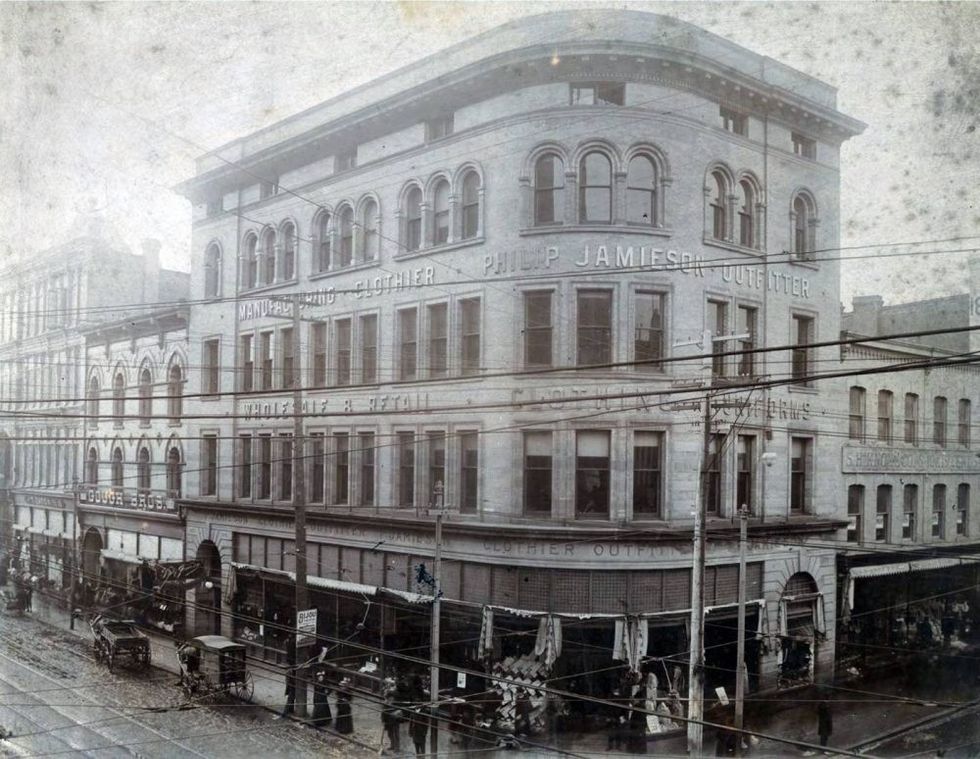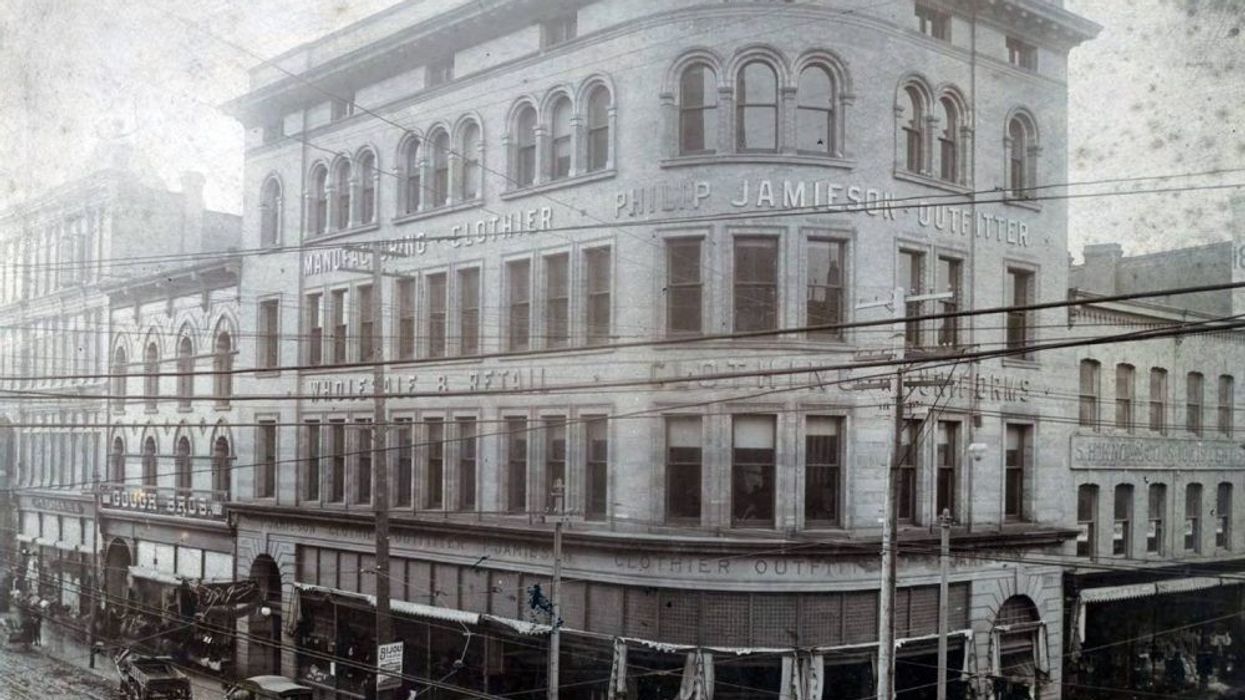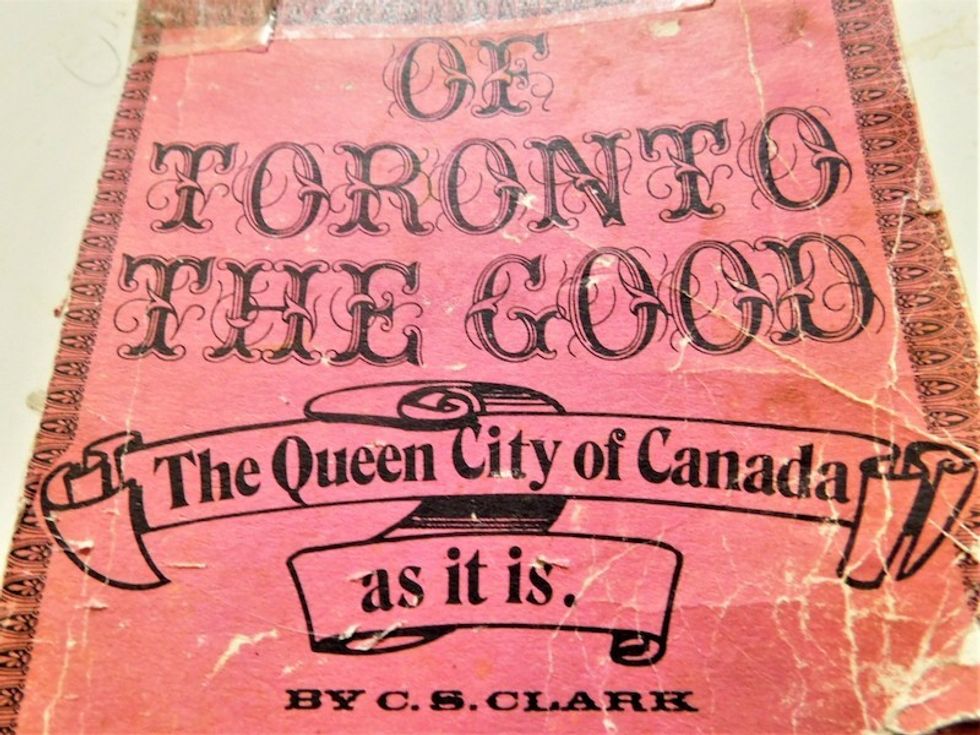
There’s a tendency to view Victorian Toronto as a prim and proper society, whose people tended to be repressed and woefully naive in their actions and ways of thinking.
It’s not true of course.
While writing a script for CTV a few years ago (it was never made), I spent a lot of time reading the numerous newspapers and writings of late 1890s Toronto. If anything, Victorian Toronto came off as rough-and-tumble as 2018, if not more.
And far from being naïve or repressed, the folks of that day seemed very much aware and concerned with the issues we worry about today — jobs, crime, taxes, politics, having a good time … and, yes, even real estate.
“When the real estate boom was in its zenith, property changed hands at prices that were an unmitigated gratification to those who sold them,” writes C.S. Clark in his 1898 social study “Toronto The Good.”
“Living in the city is very expensive, the poor are obliged to live in the shaky, tumble-down houses of Centre, Elizabeth, South Jarvis and Lombard and Bathurst … while the middle classes and those of only modest means live in the suburbs.”
Ring a few bells?
Clark’s very detailed book — which has been reprinted many times over the years — is full of “sounds familiar” moments like that.
Heck, people still talk about how everything west of The Gladstone on Queen is a bit sketchy. Who knew the Victorians felt the same? Parkdale needs a better publicist.
Of course, Toronto was nowhere near as big at that time — with a population of just under 200,000 in 1898.
As well, the annual murders from that period wouldn’t cover more than a handful of "Murdoch Mysteries" plots. Still, the annual violent crimes and triple-digit “cruelty to animals” convictions of that period suggest not everything was petticoats and church socials either in this so-called “Queen City of Canada.”
Much like today, turn-of-the-19th-century Toronto was going through some difficult growing pains.
A land boom had recently doubled the size of Toronto, but also added to the city’s debts and left many new landowners bankrupt when the real estate bubble burst.
“A considerable number of people own their own houses, though this circumstance may be of questionable advantage.”
Author Clark at times sounds a lot like a bitter would-be home buyer of 2017, unable to cope with out-of-control housing prices. At one point he suffers Victorian sticker shock while checking out a house on Charles Street.
“Price $3,000. By the fairest calculation in mathematics, it will be seen that to pay 6%, $180 are required, taxes $48 at least, and then your chances at profit are only contained in the remote contingency of the property increasing in value.”
Toronto at the turn of the 19th century does occasionally come off a bit like a Dickensian Tale of Two Cities in Clark’s eyes. While he cheers the city’s many churches and brick schools, he notes Toronto’s status as the illegal gambling and prostitution capital of Canada, and the home to “street boys” who “have no shoes, no coats and even their shirts are apologies for such.”
“I make the assertion that on every street in the city that I have ever been on, I have been solicited,” contends Clark, who favours a new form of legal prostitution to deal with the many brothels.
“The crusade against houses of ill-fame commenced some years ago and has not been a success, and will not be a success in so far as suppressing the social evil is concerned.”
When not gambling, going to church, or side-stepping prostitutes, Torontonians apparently spent a lot of time on the water. Boating, it seems, was a past time Victorian Toronto just couldn’t get enough of in the days before highways hugged our shore.
“It’s boating is unsurpassed. The bay on a summer night is one mass of skiffs and sailboats,” Clark writes.
But don’t be fooled. All that boating may have come with ulterior motives. Clark also notes a lawless boat house culture where people drank, fought and fornicated seemingly in defiance of repressive liquor laws and interfering police.
“Boat houses are the special privilege of young men and boys and girls, and prostitutes are taken there with a frequency that is surprising.”
Sounds like a party. Damn Gardiner sure spoiled the fun.






















